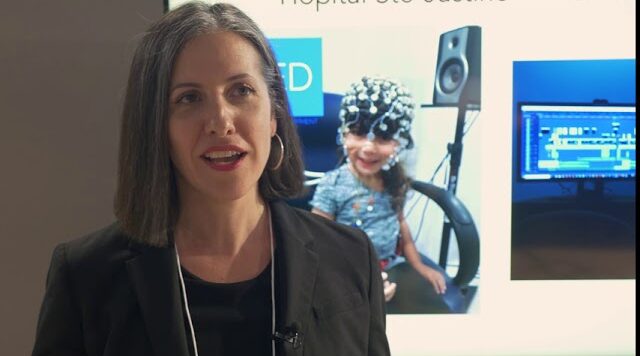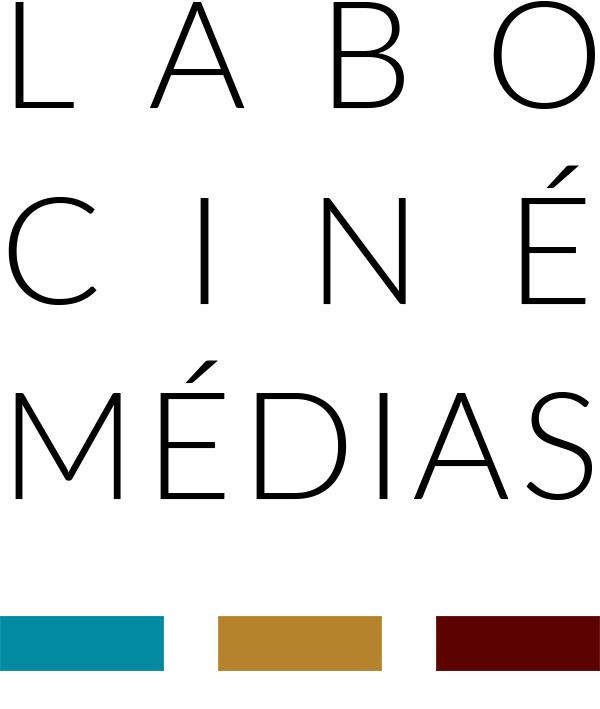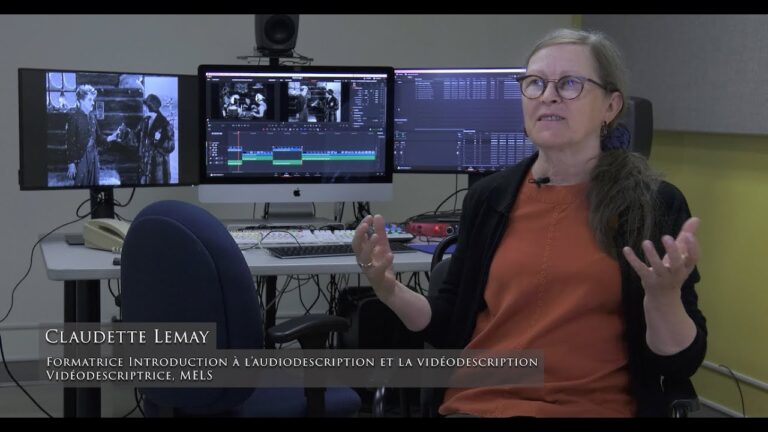The cinEXmedia partnership organized two study days at which dozens of researchers were able to reflect together on the best practices with respect to accessibility in different artistic fields.

Lou Andrysiak
While technology, and in particular artificial intelligence, enables us more than ever to provide services associated with accessibility to media, such as subtitling and audio description, its rapid evolution nevertheless poses considerable challenges for those using it. This is why the cinEXmedia partnership co-organized on 15 and 16 April at the Carrefour des arts et des sciences of the Université de Montréal, two study days entitled “Innovating in Media and Cultural Accessibility: Education, Research and Services”. The event enabled dozens of researchers to reflect together on the best practices with respect to accessibility in different artistic fields.
The study days were organized by a scholarly committee made up of Santiago Hidalgo, executive director of Laboratoire Cinémédias, Caroline Martin, a post-doctoral researcher, and Lisa Mélinand, a doctoral student and research assistant at the laboratory.
“Decoloniality and Accessibility”
The first day focused mostly on artistic creation and cinema studies, while the theme of the second day was “Innovative Accessibility through Research and Collaboration”. Bernard Perron, chair of the Département d’histoire de l’art, de cinéma et des médias audiovisuels of the Université de Montréal, emphasized the importance, precisely, of “working in a manner in keeping with the vision of the University’s EDI (Equity, Diversity, Inclusion) plan, which also promotes decoloniality and accessibility”.
Opening the event, Caroline Martin thanked her colleague Lisa Mélinand: “She has helped us greatly in finding the means to make our events as accessible as possible. We still have more to do, but I believe we are on the right path”. The second day, moreover, was entirely accessible in Quebec sign language, while the day’s talks and workshops were broadcast on Teams with automatic subtitling.
The various panel discussions were broken up by brief breaks, and each day ended with a reception to facilitate discussion and networking. Thanks to Audition Québec, it was also possible to have a hearing screening and a simulation of a loss of hearing.
Educational Needs
“The idea of a day on cinema education has been germinating for a long time in my mind”, Caroline Martin explained. “This need arose in the course of my doctoral research, as well as during my work with the organization OEIL CINÉMA here in Quebec. Teachers who make films, whether at the elementary, secondary or junior college level, regularly remark that they have trouble finding ongoing professional development. We wanted to remedy this in our own way”.
Several workshops, moreover, included activities which are usually aimed at young students in schools. Floriane Bardini, a part-time lecturer at University of Vic, in Spain, opened a series of workshops with a presentation she generally offers to secondary school students on the practice of audio description in film. Her work, she remarks, seeks to “make possible a more inclusive society. Becoming aware, opening up to a plural society and integrating people with sensory impairments is so important and yet too often neglected”.
The remainder of the programming from the “Innovating in Media and Cultural Accessibility: Education, Research and Services” study days is now available online here (in French only).

